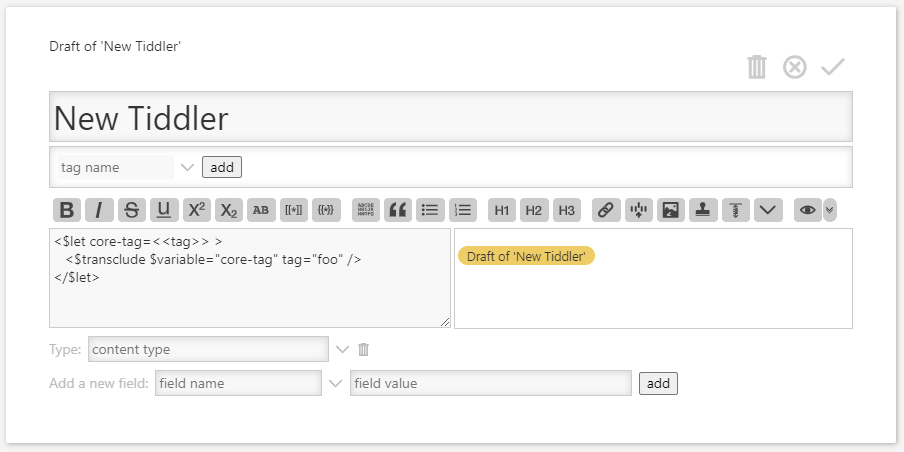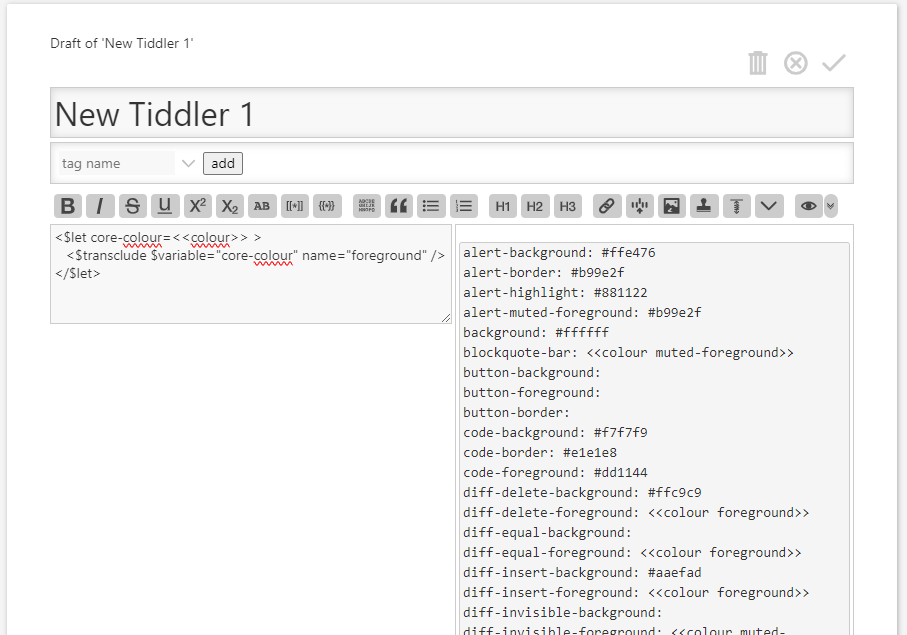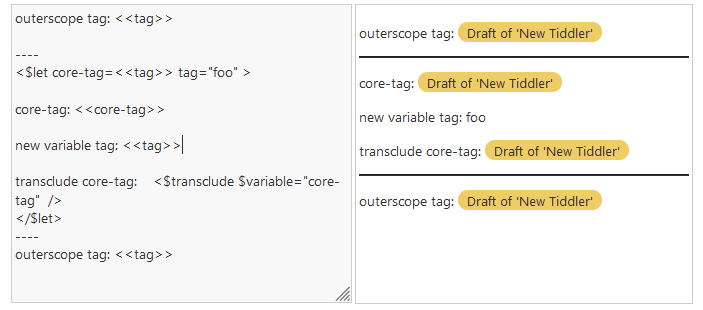Basically; I’m naming a variable tag - but I still want to use the tag macro! - How?
Phrased more generally; I’m overwriting a TW native variable name but I want to temporarily access that original native variable.
The context makes it so that using the generic name “tag” for my own variable is strongly preferable for clarity. So I get a situation equivalent of this (the $let is just to illustrate here that tag is a variable):
<$let tag=foo>
<$transclude $variable=tag tag=<<tag>> /> (hoping $variable=tag refers to the macro)
</$let>
…which unsurprisingly just transcludes my tag variable and ignores the param.
So I would need something that “resets” the variable, to fall back on its previous value:
<$let tag=foo >
<$let mytag=<<tag>>
tag="resetvariable"
>
<$transclude $variable=tag tag=<<mytag>> />
</$let>
</$let>
Is anything like that possible?
Any other solution? I did try to use the deprecated macrocallwidget instead but same resuls.
Thanks!



